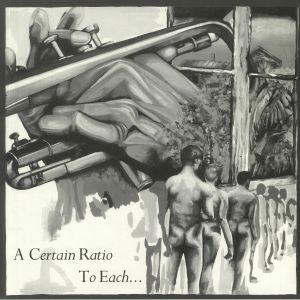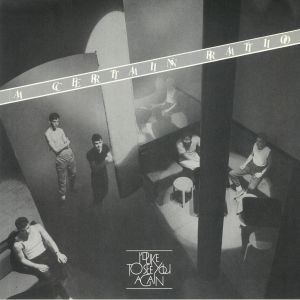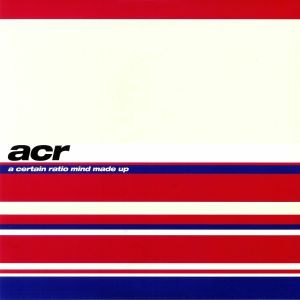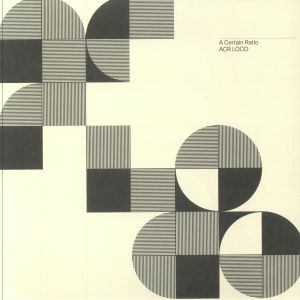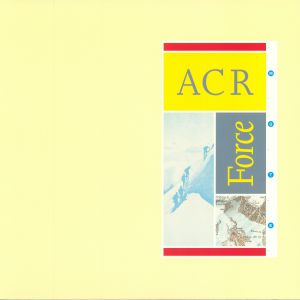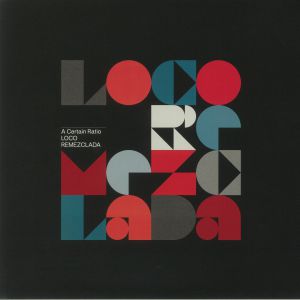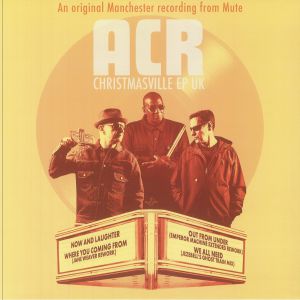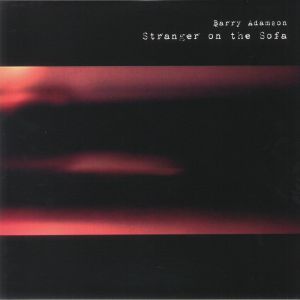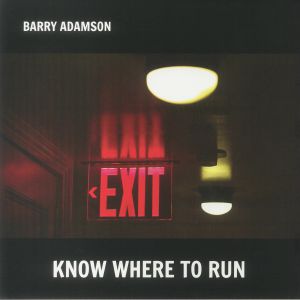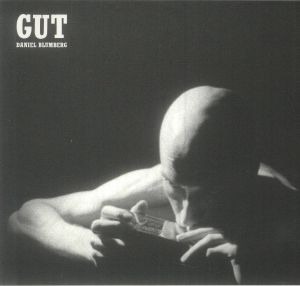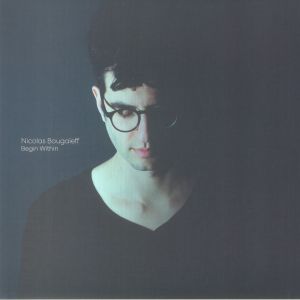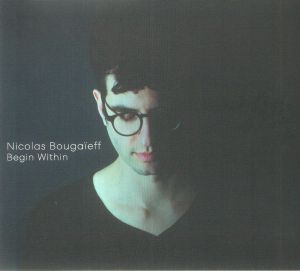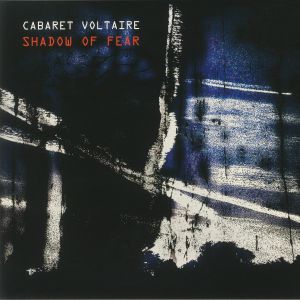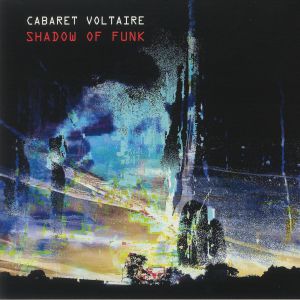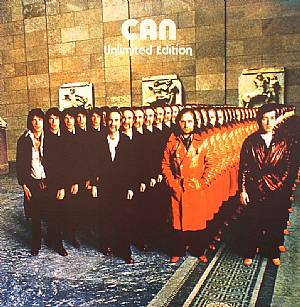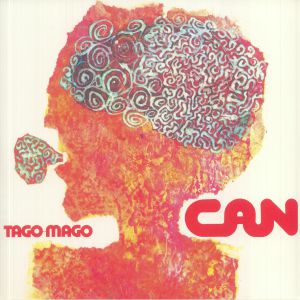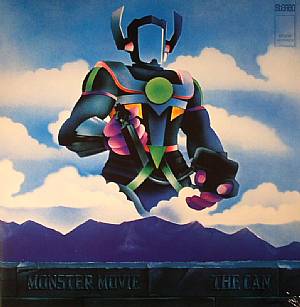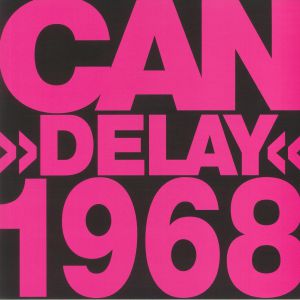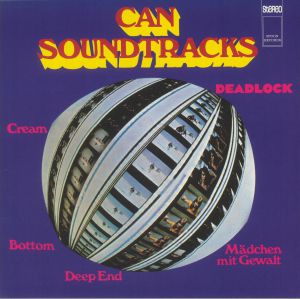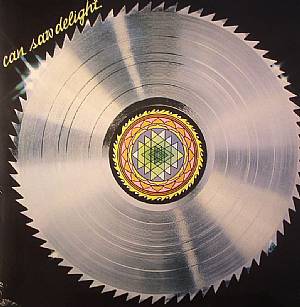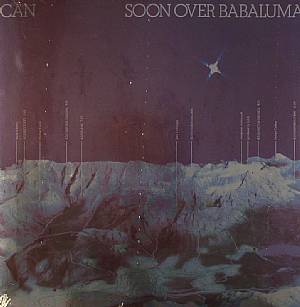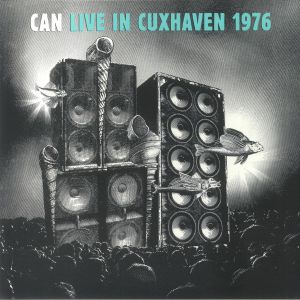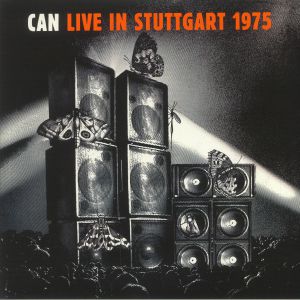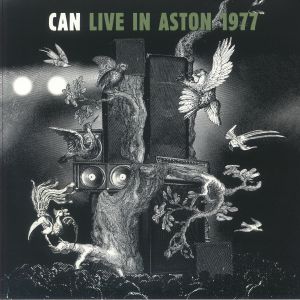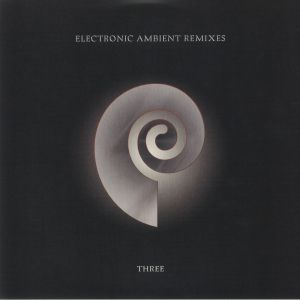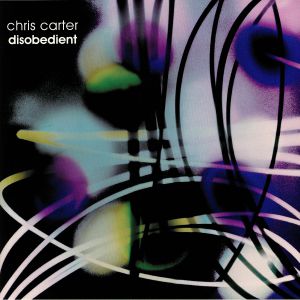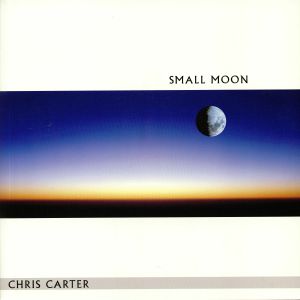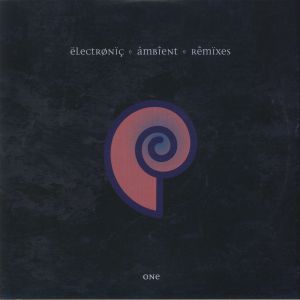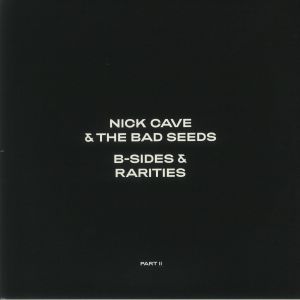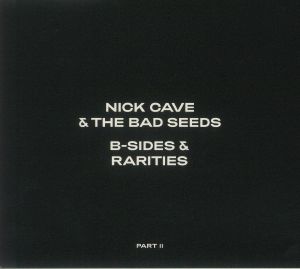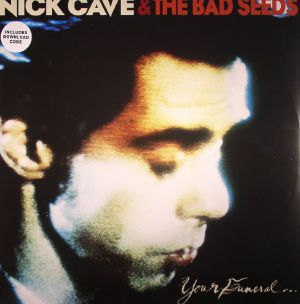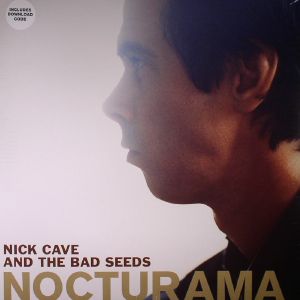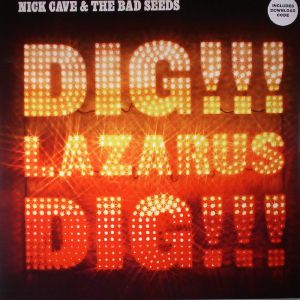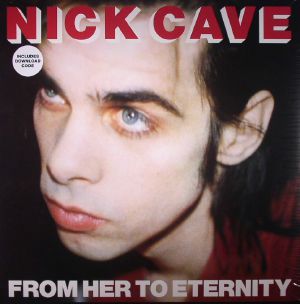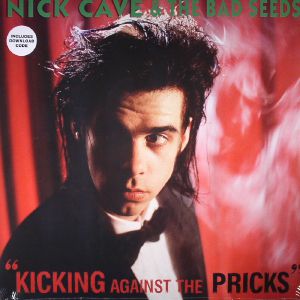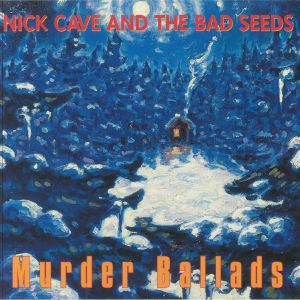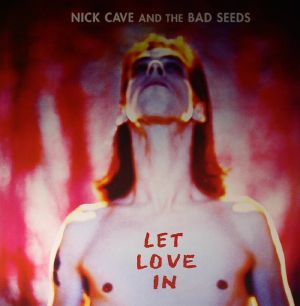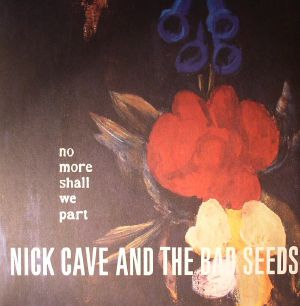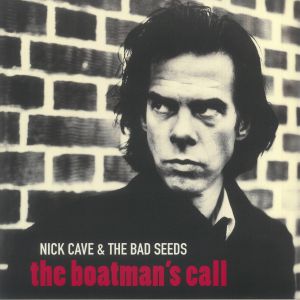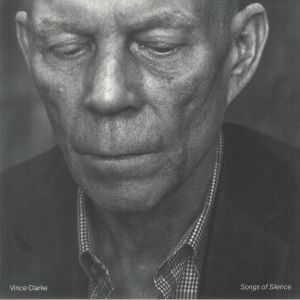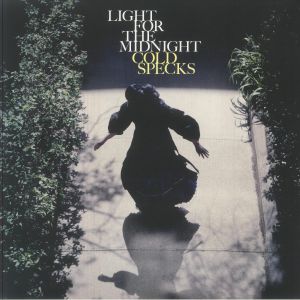Receive new release alerts for Mute
Filter
Genre
Release Date
Release Title
Price
Tags
Mute Vinyl & CDs
Browse the latest Vinyl & CD releases on MuteSimilar labels:
ACR:EPR (limited grey vinyl 12" + MP3 download code)
Cat: 12MUTE 633. Rel: 13 Aug 21
Indie/Alternative
Review: Let's face facts, the trilogy of releases that ACR:EPR completes have helped win over a new generation of fans for the band while reassuring established followers that A Certain Ratio can still do the business. They've been heartfelt and honest, truly innovative and - when all is said and done, at some point in the near future - destined to be considered collector's items.
The final chapter is certainly winding things up triumphantly. '$ouls In The City' seems to go straight for the mind's eye, an enrapturing track that chugs its way through layers of funk groove, with acid details just about audible on top. 'Night People' is a far more sticky, treacly affair, while 'Big Boy Pants' ushers in a kind of nocturnal seduction, brass and rolling breakbeats setting the scene perfectly for the ska-infused melodies of 'Downtime Vibes' that follow.
… Read moreThe final chapter is certainly winding things up triumphantly. '$ouls In The City' seems to go straight for the mind's eye, an enrapturing track that chugs its way through layers of funk groove, with acid details just about audible on top. 'Night People' is a far more sticky, treacly affair, while 'Big Boy Pants' ushers in a kind of nocturnal seduction, brass and rolling breakbeats setting the scene perfectly for the ska-infused melodies of 'Downtime Vibes' that follow.
Played by: Juno Recommends Rock/Indie
in stock $16.61
To Each (reissue) (limited gatefold white vinyl 2xLP + MP3 download code)
Cat: WSTUMM 407. Rel: 11 Dec 20
Indie/Alternative
in stock $26.04
in stock $26.58
I'd Like To See You Again (reissue) (limited white vinyl LP + insert)
Cat: WSTUMM 409. Rel: 11 Dec 20
Funk
in stock $26.58
Review: A Certain Ratio have returned with their most tight and funky album, possibly ever, recently, and it is steeped in 40 years of ACR DNA. Now you can grab two of the standout singles on this fine, limited edition white 7" thanks to Daniel Miller's essential Mute. Opener 'Berlin' is the second single from that album, ACR Loco, and has breezy vocals and Trillin riffs over tight drum work. 'Dirty Boy' is riddled with squelchy synth funk, with popping drums and a great vocal performance that will get any party vibing.
… Read morePlayed by: Juno Records Staff Picks
in stock $18.71
in stock $21.04
Mind Made Up (reissue) (purple vinyl 2xLP + MP3 download code)
Cat: STUMM 413. Rel: 27 Jul 18
Coldwave/Synth
in stock $28.26
ACR Loco (limited coloured vinyl LP + booklet + MP3 download code)
Cat: STUMM 454. Rel: 25 Sep 20
Funk
Review: A Certain Ratio's core trio of drummer Donald Johnson, bassist/vocalist Jez Kerr, and multi-instrumentalist Martin Moscrop make ACR Loco a perfectly fluid and funk album. In fact, on this, their first album in more than ten years, the Manchester post-punk outfit are as funky as they have ever been. Their tried and tested sound gets nicely updated with modern beat driven sounds and plenty of redefines to today's political strife in the lyrics. There are plenty of smooth and cool synth led grooves like 'Get A Grip' and messages of unity on 'Family' that we can all relate to.
… Read morePlayed by: DJ ROCCA
in stock $26.04
in stock $21.89
Force (reissue) (yellow vinyl 2xLP + MP3 download code)
Cat: STUMM 410. Rel: 24 Nov 17
Indie/Alternative
in stock $26.04
Loco Remezclada (gatefold clear vinyl 2xLP + MP3 download code in spot-varnished sleeve)
Cat: RSTUMM 454. Rel: 05 Nov 21
Experimental/Electronic
in stock $24.93
Review: Perhaps one of the most important bands to come out of Manchester ever. Up there with Joy Division, their funky post-punk is the very essence of that genre and possibly why a lot of bands like to call themselves post-punk. They're just wishing they sound as good as A Certain Ratio. For this latest release, the follow-up to their album It All Comes Down To This, they've reworked songs from said album - sensationally - and released a Christmas single. 'Now And Laughter' is described as an ode to "the unsung heroes that are on hand when the pressures of the festivities can become too much to bear." It's awash with sumptuous echoing guitar, a somber lead vocal which makes you want to raise your lighter and gently sway. There's a hint of David Bowie in there and the lyrics appear genuinely emotional and appreciative. This is a song of blissful poignance that can help remind us of what really matters in life as it captures a sense of vulnerability and awe in the magic of the moment.
… Read morePlayed by: DJ ROCCA
in stock $26.04
Stranger On The Sofa (reissue) (limited translucent red vinyl 2xLP + MP3 download code)
Cat: BARRY 1. Rel: 22 Sep 22
Indie/Alternative
in stock $20.78
Back To The Cat (reissue) (limited clear vinyl LP in spot-varnished sleeve)
Cat: BARRY 2. Rel: 23 Sep 22
Soul
in stock $18.83
Know Where To Run (reissue) (limited silver vinyl LP + photobook + MP3 Download code)
Cat: BARRY 4. Rel: 02 Dec 22
Indie/Alternative
in stock $18.83
in stock $8.59
in stock $21.05
in stock $10.81
Review: London's legendary Mute institution goes back to its roots and digs up some of the best work by one of the UK's finest Cabaret Voltaire. These guys don't really need an introduction give the fact that they're pretty much responsible for the rise of post-punk right through to the birth of techno. It was about time a new compilation of their stuff was released, especially one as brutally on-point as this one! All the classics such as "Nag Nag Nag", "Kneel To The Boss" and "On Every Other Street" are one here but the more obscure rarities that were previously only available on 7" are the real winners. "Just Fascination", for example, is one you'll certainly want on a longer, re-mastered cut! Downright essential!
… Read morePlayed by: Juno Recommends Experimental, Snuffo
in stock $21.89
Shadow Of Fear (limited gatefold purple vinyl 2xLP + insert + MP3 download code)
Cat: CABS 30. Rel: 20 Nov 20
Experimental/Electronic
Review: The arrival of a new Cabaret Voltaire album - the first since 1994 according to our records - should excite all those who hold the work of the pioneering Sheffield outfit dear. It's now a solo project from Richard H Kirk (he decided to keep the name after parting company with Stephen Mallinder in the late '90s), but the distinctive stylistic ticks remain (think paranoid sonic textures, metallic percussion hits, clear dub influences, plentiful spoken word samples, curious electronic noises and nods towards the industrial funk, EBM and post-punk). Naturally it's not as ground-breaking as Kirk and company's work in the '70s and '80s, but it is undeniably a Cabaret Voltaire album - and one that subtly updates the Cabs' particular brand of dense, dancefloor-ready paranoia for a new century.
… Read more in stock $24.93
Shadow Of Funk (limited transparent blue vinyl 12" + MP3 download code)
Cat: 12MUTE 622. Rel: 26 Feb 21
Coldwave/Synth
Review: When Cabaret Voltaire returned to the release schedule in 2020 as the one-man Richard H Kirk show, fans were relieved to find that mind-bending meld of 1970s Kosmische, techno, dub, house and space-age experimental electro was as pure as it ever has been - the results being a typically fresh and forward-thinking record the man in question summed up as "no nostalgia... normal rules do not apply. Something for the 21st Century. No old material."
Less than six months later and the big CV has more next level business to offer us, coming in the form of Shadow of Funk, a new EP that offers something of a counterpoint or extension to last year's full-length, Shadow of Fear. Based on 'Billion Dollar' alone - an acid-driven big, dark room banger that closes this EP -this release looks set to make an equally heavy impact, but as with anything this man touches, the joy is in discovery. So, let's leave it at that.
… Read moreLess than six months later and the big CV has more next level business to offer us, coming in the form of Shadow of Funk, a new EP that offers something of a counterpoint or extension to last year's full-length, Shadow of Fear. Based on 'Billion Dollar' alone - an acid-driven big, dark room banger that closes this EP -this release looks set to make an equally heavy impact, but as with anything this man touches, the joy is in discovery. So, let's leave it at that.
Played by: Juno Recommends Leftfield
in stock $22.71
in stock $28.26
Played by: Juno Recommends Rock/Indie
in stock $32.69
in stock $26.58
Review: In the forty-two years since the release of Ege Bamyasi, no-one has done as much to blend the spheres of experimental rock music and the avant-garde than Can, whilst also maintaining a hip-shaking primal pulse and delivering a radiant wash of kaleidoscopic sound that defies classification. Ege Bamyasi still stands as one of their crowning achievements, and one whose spooky reverberations have made their presence felt throughout a mighty chunk of the rock and dance music of the decades that have followed. An otherworldly masterclass for the ages.
… Read morePlayed by: De Los Miedos
in stock $19.67
Delay 1968 (reissue) (limited translucent pink vinyl LP + MP3 download code)
Cat: XLSPOON 12. Rel: 30 Apr 21
Psych/Garage Rock
Review: For fans, this album contains the very essence of what made CAN such an iconic group. The band's blend of progressive rhythms and morphing, tantilizing melodies are all here in Delay 1968, which was recored in that year but not initially put out until 1981 (it was initially meant to be their debut album). Each tune comes laden with thrilling effects, tape edits, loops that makes every tune brim with vitality and a harsh, coarse texture. There is a real rawness to the whole thing that makes it a definitive garage-rock classic with some calling it a proto-CAN sound because of how they evolved in subsequent years.
… Read more in stock $24.93
Soundtracks (reissue) (limited translucent purple marbled vinyl LP + MP3 download code)
Cat: XLSPOON 5. Rel: 01 Apr 22
Psych/Garage Rock
Review: Mute and Spoon Records continue in their CAN retrospective bout, following up the first two parts of the long-lost CAN live series ('Brighton' and 'Stuttgart' respectively) with further re-releases of their best known albums. 'Soundtracks' - their 1970 album in which every song was written with the intention of being included in various German films including Deadlock, Cream and Deep End - here gets a limited purple vinyl reissue. Functionally, though, the music could form a standalone conceptual CAN album in its own right. It's also full of the dramas that go hand in hand with your usual LP output; this album marks the point at which the original vocalist for the band, Malcolm Mooney, was replaced by Damo Suzuki.
… Read more in stock $24.93
in stock $18.71
in stock $18.71
Live In Cuxhaven 1976 (limited translucent blue vinyl LP + booklet + MP3 download code)
Cat: SPOON 65. Rel: 13 Oct 22
Progressive Rock
Review: Live in Cuxhaven 1976 is the third release in Can's special series of live album reissues. It follows Can Live in Brighton 1975, which came out in December 2021. As with a good chunk of Can's latest releases documenting the bulk of their live appearances (which were inarguably their best performances, often outmatching their recorded material), the album consists of four instrumental pieces Eins, Zwei, Drei and Vier.
… Read more in stock $18.71
Live In Stuttgart 1975 (limited trifold orange vinyl 3xLP + booklet + MP3 download code)
Cat: SPOON 63. Rel: 28 May 21
Post Rock/Experimental
Review: RECOMMENDED
You always feel like you've pushed through the other side of the mirror when it comes to CAN. A mysterious, groove-laden, funk-infused yet utterly lucid place where guitar hooks seem to come out of the walls, rhythmic hypnosis draws listeners ever-deeper into a place that, while perhaps not entirely theirs, is one which they helped build in the outer limits of late-1960s surrealist rock.
Laying the foundations for early progressive and krautrock with an avant-garde approach to songwriting, by the time this Stuttgart gig took place they had almost a decade of work to go at, and yet as the tracklist suggests the band always had improvisation at their core in a live setting. Concerts that would transport crowds far beyond the venue, into thick layers of melody, hooks and strange effects, every single recording of every show is a genuine moment in history never to be repeated again.
… Read moreYou always feel like you've pushed through the other side of the mirror when it comes to CAN. A mysterious, groove-laden, funk-infused yet utterly lucid place where guitar hooks seem to come out of the walls, rhythmic hypnosis draws listeners ever-deeper into a place that, while perhaps not entirely theirs, is one which they helped build in the outer limits of late-1960s surrealist rock.
Laying the foundations for early progressive and krautrock with an avant-garde approach to songwriting, by the time this Stuttgart gig took place they had almost a decade of work to go at, and yet as the tracklist suggests the band always had improvisation at their core in a live setting. Concerts that would transport crowds far beyond the venue, into thick layers of melody, hooks and strange effects, every single recording of every show is a genuine moment in history never to be repeated again.
Played by: Dj soFa, Juno Recommends Rock/Indie
in stock $31.02
Review: Live in Aston 1977, the latest installment in Can's series of live album releases, offers a fresh perspective on the band's dynamic stage presence. Released via Mute and Future Days, this release provides a glimpse into a challenging period for Can, following the mixed reception their eighth studio album, Saw Delight, elicited. Despite any expectations of a decline in energy or creativity, the live performances captured on this album defy such notions. Instead, they showcase Can's enduring vitality and adaptability, reaffirming their reputation as a band capable of captivating audiences with their unpredictable live shows. Notably, Live in Aston 1977 marks the debut of bassist Rosko Gee (Traffic) within the Can Live series. His addition to the lineup injects a fresh energy into the band's sound, complementing the innovative contributions of Irmin Schmidt, Jaki Liebezeit, Michael Karoli and Holger Czukay. Accompanied by a booklet, this release offers fans a deeper insight into Can's live performances during this period. It serves as a reminder of the band's relentless pursuit of sonic exploration and improvisation, making it a valuable addition to the Can discography for both longtime fans and newcomers alike.
… Read more in stock $26.58
in stock $32.13
Electronic Ambient Remixes Three (limited grey vinyl 2xLP (side 4 etched) + MP3 download code)
Cat: CCEAR 3LP. Rel: 03 Sep 21
Experimental/Electronic
Played by: Juno Recommends Experimental
in stock $24.93
Disobedient (limited gatefold purple vinyl 2xLP + FLAC/MP3 download code)
Cat: CCLP 3. Rel: 03 May 19
Experimental/Electronic
Played by: Alexis Le-Tan
in stock $24.11
Small Moon (limited gatefold white vinyl 2xLP + FLAC/MP3 download code)
Cat: CCLP 4. Rel: 03 May 19
Experimental/Electronic
Played by: Alexis Le-Tan
in stock $24.93
Electronic Ambient Remixes One (limited transparent violet vinyl 2xLP + MP3 download code)
Cat: CCEAR 1LP. Rel: 03 Sep 21
Experimental/Electronic
Played by: Juno Recommends Experimental
in stock $23.83
B Sides & Rarities: Part II (limited 180 gram vinyl 2xLP)
Cat: 405053 8626797. Rel: 22 Oct 21
Indie/Alternative
Review: It's taken a while for Nick Cave to get round to releasing a follow-up to 2005's self-explanatory B-Sides and Rarities compilation. We'd argue that it's been worth the wait though. The 16-year gap between the releases has allowed for a wider sweep of the iconic artist's archives, so much so that it features no less than 27 tracks stretched across two coloured slabs of wax. Record one focuses on B-sides, bonus tracks and rarities, including a duet with Debbie Harry and a superb live version of 'Push The Sky Away' with the Melbourne Symphony Orchestra. It's the second record that will most excite fans though, featuring as it does unreleased material. There are plenty of unheard songs of course, but also early recordings of such fan favourites as 'Skeleton Tree' and 'Bright Horses'.
… Read more in stock $24.93
in stock $18.86
in stock $33.23
in stock $30.76
Dig Lazarus Dig!!! (heavyweight vinyl LP + 1-sided LP)
Cat: LPSEEDS 14. Rel: 11 Nov 14
Indie/Alternative
in stock $34.35
! low stock $26.88
in stock $26.88
in stock $33.23
Do You Love Me?
Nobody's Baby Now
Loverman
Jangling Jack
Red Right Hand
I Let Love In
Thirsty Dog
Ain't Gonna Rain Anymore
Lay Me Low
Do You Love Me? (part 2)
Played by: Maciek Sienkiewicz, Juno Recommends Rock/Indie
in stock $26.88
Played by: Juno Recommends Rock/Indie
in stock $34.35
in stock $26.04
Review: Vince Clarke (Erasure, Yazoo, Depeche Mode, The Assembly) presents his first ever solo album, Songs of Silence. As the album title suggests, it's a lyricless (though not vocal-free) instrumental album, and unlike anything you might've previously heard before from Clarke as an artisan of dynamic electropop. Rather, this LP brings with it a comparatively sober ambient electronic beauty, its unique characteristics lending it a category of its own. But two self-imposed oblique strategies underpinned its creation - first, that the sounds Clarke generated for the album would come solely from Eurorack (a modular synthesizer format introduced in the mid-90s), and second, that each track would be based around one note, maintaining a single key throughout.
… Read more in stock $43.78
in stock $29.64

 USD
USD






